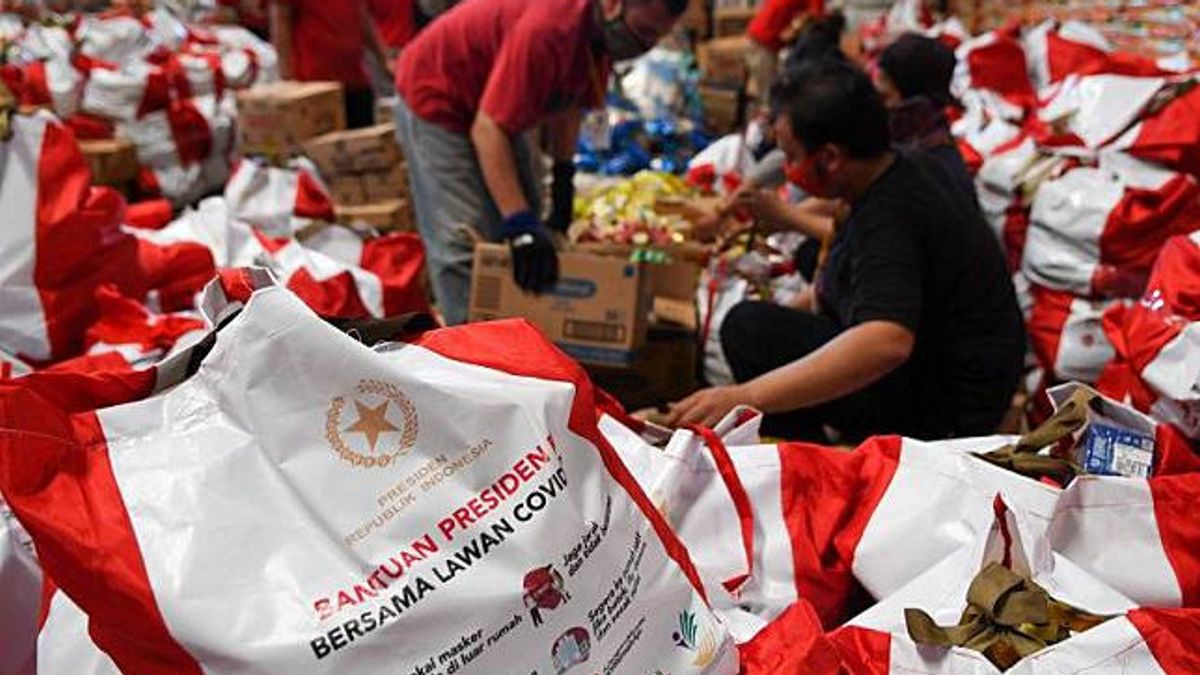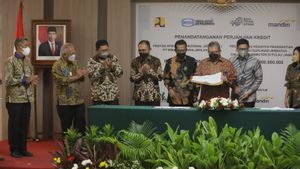JAKARTA – An economic observer from the Center of Reform on Economics (CORE) Indonesia, Yusuf Rendy Manilet, assessed that the government's plan to reduce the social assistance budget to be diverted as energy subsidies, especially fuel oil (BBM), was deemed inappropriate.
The reason is, that with the momentum of Ramadan as it is today, the social assistance scheme is still needed to control people's purchasing power amidst the trend of increasing prices of basic goods due to seasonal factors. In fact, he encouraged the government to disburse more funds so that the macroeconomy could continue to run at the expected pace.
“I think the subsidy budget policy should be juxtaposed with maintaining the budget ceiling for social assistance. Even if you want to maintain people's purchasing power, especially in the month of Ramadan, the government can also add social protection assistance posts", he said when contacted by VOI in the middle of this week.
Rendy himself did not deny that the proposed proposal would have consequences for the use of the State Revenue and Expenditure Budget (APBN). However, the CORE economist reminded that the government actually has quite an open space considering that the country also gets more income from soaring commodity prices.
“Indeed, this budget has the potential to increase the government's budget. But don't forget that with the increase in commodity prices, the revenue side also gets a windfall that can be compensated for by adjusting the spending budget without having to worry about disrupting the government's fiscal consolidation plan this year and next year", he explained.
SEE ALSO:
Furthermore, this year the government is working hard to restore the structure of the state budget. This is because the 2023 period is the first time the widening of the budget deficit will be abolished to return to the rule below 3 percent of gross domestic product (GDP).
As a consequence, the state will try to reduce spending while at the same time encouraging the revenue sector so that the burden on the state budget can be reduced to normal conditions.
To note, in the last two years the budget deficit has widened to a record IDR 947.6 trillion or 6.14 percent of GDP in 2020.
Then, for the 2021 APBN period, it is stated that there is a deficit of IDR 783.7 trillion, or the equivalent of 4.65 percent of PDN.
Meanwhile, for the 2022 State Budget, the deficit is set at IDR 868 trillion or 4.85 percent of GDP. Meanwhile, the realization until last February of the State Revenue and Expenditure Budget was reported to be a surplus of IDR 19.7 trillion.
For information, the discourse of reallocating the social assistance budget into energy subsidies was first expressed by the Minister of Finance, Sri Mulyani.
"So if in 2020, 2021, the domination of the recipients was targeted social assistance which was by name, by address, or by the number of the recipient of assistance, now in 2022 due to the spike in subsidized prices, the social assistance has turned into subsidies in the form of goods, namely fuel, LPG and electricity", said the Minister of Finance.
The English, Chinese, Japanese, Arabic, and French versions are automatically generated by the AI. So there may still be inaccuracies in translating, please always see Indonesian as our main language. (system supported by DigitalSiber.id)
















